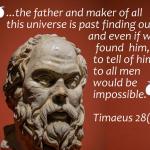Why Christian Hip Hop Matters: Faith and Identity in Christian Hip Hop

Who said anything about Christian Hip Hop?
My interest is in Hip Hop as a signifyin’ lexicon of socio-political-economic value for identity and representation. To complicate matters I write projects based around the value and importance for
Christian faith-based Hip Hop. Taking this exciting direction I authored short articles and sent them out to any publication that may appear to be interested. It should be no surprise that each of those submissions were rejected. I fear that they were rejected about as fast as they digitally arrived to the editor’s Inbox. This brought more questions to my apologetic deconstructive approach. Layering that discourse with a punkish theoretical directive, an unsettling need to inquire “why?” remained a persistent burden. What those rejection emails shed was more value on the importance of Christian Hip Hop.
Hours each night of listening to various Christian Hip Hop artists became a standard study. I approached this research agenda with

the technique of turning-off of the overly analytical part of the mind. Relaxing that micro-managing hindrance was a new step I applied for each track reviewed. I began to naturally listen. Ceasing the mind and allowing the sounds, the language, the rhetoric, and the rhyming through biblical verses was a confused approach at first. After weeks on end, that discipline broke free from a technical investigation into a comfortable vernacular. Then the research seriously began to get going.
Some key questions and themes began to surface. Why is Christian Hip Hop such a scary juxtaposition of terms? Can the core Elements of Hip Hop (DJ, Rap, Breakdance, Graffiti, Media, Fashion/Style) apply to an artist who is committed to their faith/belief? Can the signifiers of Hip Hop (Rupture/Flow, Cut/Mix, Layering, Sermonizing) relate just as well to these same artists? Or, are the socio-religious lexicons of these areas so widely separated that to use each in a sentence is somehow a cultural violation?
Developing the Argument

The critical review began with some of those in the limelight of Christian Hip Hop, Dax, Hulvey, and BK, to name a few. Listening to their selections began to showcase repetitive elements. As the depth of research continued, other lesser-known artists began to surface with works that challenged those noted as core to Christian Hip Hop. Kingdom Muzic provided an emphasis on these Christian Hip Hop artists who may have otherwise not been witnessed. This led to another directive. Can Christian Hip Hop provide a fruitful and critical agency for the advancement of faith?

A dividing point began to surface between those recognized artists in contrast to the lesser-known artists. Nearly most of the Christian Hip Hop artists reviewed captured aspects and disclaimers of the current Hip Hop culture. However, it was their narrative inclusion of these elements that is curious. Why are some of the larger Christian Hip Hop artists using negative components and aspects of contemporary Hip Hop culture to profile their work? Why do these same artists elect to represent their works in a highly theatrical context? This leads one to recall the “mega-church” or “prosper Christianity” identity. In contrast, Christian Hip Hop artists who directly narrate their works with a faith-based center provide a”local community church” or underground identity.

This line of demarcation is more present than one might imagine. It is exactly this dividing point that frames a stereotype of Christian Hip Hop. External secular biases placed upon Christian Hip Hop are not founded upon the integration of faith or a belief system dialect. Rather, these markers of discontent for Christian Hip Hop are structured by references and installations of contemporary Hip Hop identity signifiers. The inclusion and reaffirmation of faith and belief in Christian Hip Hop, ironically, is not the first point of attention from a secular perspective. Likewise, for those within the Christian Hip Hop vernacular – who have found fame and prominence – the integration of faith and belief is nearly a passenger in their musical journey.
A faithful purpose?
Christian Hip Hop, I argue, can re-position the perspective needed for a critical reading of the current socio-political, cultural lexicon, and spiritual progress of a global-local (glocal) corpus. This is not an academic exercise intended to intellectualize Christian Hip Hop. Nor is this research agenda one hyper-focused on a subgenre of Hip Hop culture. Rather, this apologetic trajectory is situated to establish how faith/belief is witnessed, represented, maintained, and progressed through Christian Hp Hop while not compromising the importance of faith/belief for any reviewing audience.
The dynamics at play here are far-reaching. The intent and scope of this research may need to be collected within a series of articles. Yet, even that may not be enough to satisfy the apologetic discipline and critical cultural analysis applied to Christian Hip Hop. Noting this, does that lessen the value of this work? I argue that it is because of the extent that this research and collected writing requires that proves the importance of this work.
What fun! An apologetic deconstruction of Christian Hip Hop. A critical reading of artists, their use of Hip Hop Elements/Points, and the argument for faith/belief. Rise up, let the game begin!
Starting the Analysis
In his blog, Identity: Individual and the state versus the subsidiary hierarchy of heaven, (20 January 2024) Dr. Jordan Peterson states that, “[t]he book of Exodus lays out…psychological and social alternative[s] to…chaos. There are two extremes…one is [a] hierarchical order, the other is desert chaos. Exodus includes a notion of hierarchical identity that both [individually] and [socially] ….parallels the essence of identity itself.” Following this analysis, as applied to some highly popular Christian Hip Hop artists, the view and importance of self illustrates a “mega-prosperity church” capitol. Hip Hop is the vehicle that is elected to represent an identity. However, the projected identity is a fallacy. The foundations of faith/belief are subject to a minimal position subordinate to the signifiers of secular Hip Hop culture and identity.

The metaphor of Exodus presented by Dr. Peterson is the removal of faith/belief. The “psychological and social alternative,” then, is the accepted abandonment of Christian values, belief, and faith to construct, ascertain, and maintain a “mega-prosperity church” identity. The hierarchical identity for these “mega–prosperity church” Christian Hip Hop artists is structured by individual directives and socially prescribed assumptions. Further, these “mega-prosperity church” Christian Hip Hop artists subject themselves and their expressions to an essentialist limited viewpoint. The insult to injury of this reality is witnessed by those who stereotype a “mega-prosperity church” perspective of Christian Hip Hop as being authentic.
Dr. Peterson’s Exodus metaphor was not intended to expel Christian artists who engage Hip Hop. This Exodus metaphor calls into view that there is an inconsistency within Christian Hip Hop. The location of faith, belief, and Christian culture may be overlooked and dismissed entirely by those outside of Christian faith/belief systems. The danger is that the external non-Christian audience has come to identify the indulgent use of contemporary Hip Hop signifiers with any relation to Christianity as authentic Christian Hip Hop.
This subgenre Christian Hip Hop may be just an alternative for those who do not see the importance of faith/belief in the expressed art of Christian Hip Hop. That would be an outsider’s perspective. In contrast, those who do place and value faith/belief in Christian Hip Hop at the fore can be seen as holding an insider perspective. Returning to the Exodus metaphor, by example, those “mega-prosperity church” Christian Hip Hop artists are left desiring the visibility of an authentic evangelical voice socio-linguistically framed in Hip Hop. Marginalizing a sound foundation of bible literature in exchange for mass exposure and personal gratification reverses the actions described in Exodus. The journey was into God’s promise for His people and out of bondage. “Mega-prosperity church” Christian Hip Hop artists journey – by engagement and connection to contemporary Hip Hop signifiers – into a location of bondage out of the way of where their work could potentially reveal a sonic evangelic voice. I argue that this manner of Christian Hip Hop dialectic is consistent with the writings of the apostles regarding the metaphor and symbol of Babylon. A once power social capitol, Babylon became a fallen city of corruption, a metaphor of contest to the founding gospel truths, a “[g]reat [c]ity is a great desert.” The “mega-prosperity church” signifier strays from what a core apologetic foundation of Christianity holds, even when applied to the cultural context of Hip Hop.
An insider Christian Hip Hop vernacular, I argue, follows an apostle-derived narrative binding faith, belief, and work to spread the gospel. The apostle Paul noted that our faith/belief is justified by “faith in Christ.” Contrast to this is the point of James who also declared that we are “justified by works…and not belief alone.” These two contrasting views remain arguing points to this day.

Insider Christian Hip Hop binds these points together noting the importance of work centered upon faith/belief. The artist Bryann T in his track “All Belongs to You” describes the importance and value of work – through faith-building belief – and founding one’s Christian values on apostolic truth. Even the opening lines, Lord, it all belongs to you, already notes a difference between these two avenues of Christian Hip Hop expression. The lyrics continue to speak about discipleship and Galatians Chapter 5 is referenced. This is where the apostle Paul notes the importance of how to practically live in accordance with the laws of God. This is a very powerful statement to start a Hip Hop track. Galatians 5:6 further illustrates the point that Bryann T is making when Paul writes, “but only faith working through love.” What this track provides is conjunctive location for faith/belief within Hip Hop. This agency is not readily visible in “mega-prosperity church” Christian Hip Hop. In one simple 5:27 methodically scripted track the differences in Christian Hip Hop are exposed.
Not the end of the tale
This is only a short introduction toward how a critical analysis of Christian Hip Hop can foster faith/belief. The direction points toward a need to further this perspective. A socio-linguistic apologetic reading of the named artists will deepen the scope of this project. Contemporary Hip Hop’s Elements/Layers and their acculturation in Christian Hip Hop furthers this discourse. A potential argument for a conscious or unconscious Christian Hip Hop dialectic expands this work closer toward the centers of those writing and researching contemporary Hip Hop. My position remains that this is not a pedagogical experiment. This work is intended to include the multiple streams of influence involved in the construction of Christian Hip Hop. The relevant value of this ongoing work is for those non-Christian Hip Hop audience viewers to not obtain an eschewed identity of Christian Hip Hop. This work takes into account the sensitivity of the included topics along with the varying degrees and arguments for and against this analysis. It is upon the shoulders of that strength that this proposed apologetic deconstructive work will face and serve, in dialogue, as presented. Borrowing a slang idiom, let’s just say, “bring it on.”














